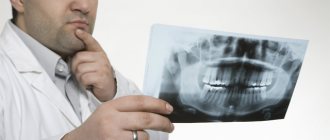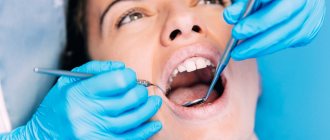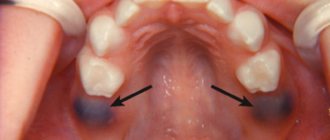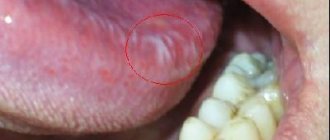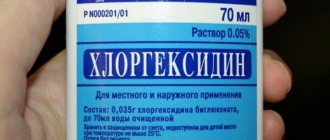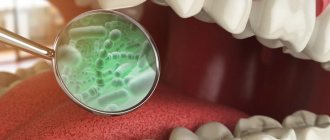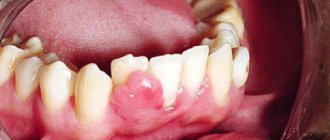To understand what allergic stomatitis , it is necessary to clarify two concepts.
Allergy. An excessive protective reaction of the body's immune system to certain external substances foreign to the body, called allergens. These may be substances that are essentially harmless to humans, but for some people (allergy sufferers) they are perceived by the immune system as dangerous to the body. In immunology, there are several types of allergic reactions, but in practical allergology only type I (fast or instant reaction) and type IV (slow or delayed reaction) are relevant. These types of reactions in the body can occur separately, but they can also occur in parallel. In addition, symptoms similar to those of allergies can be caused by other pathologies, for example, pseudoallergic diseases, conditions of intolerance to certain substances.
Autoimmune diseases. A generalized medical term for pathologies that are based on an excessive reaction of the immune system to the body’s own tissue elements (fragments). That is, the immune system recognizes these elements of the body as foreign and triggers a chain of defensive reactions, leading to severe inflammation and pathologies of various internal organs.
Allergic reactions and autoimmune pathologies can manifest themselves on the oral mucosa and the generalized term allergic stomatitis .
Unfortunately, the relative number of patients with symptoms of allergic stomatitis has recently increased. This is due not only to the fact that the ecology of the external environment is deteriorating or new potentially allergenic components appear in food products. It is believed that a significant contribution is made by the emergence of new and diverse materials used in dental treatment - filling materials, materials for dental crowns and dentures, for the manufacture of braces and implants, various mouth rinses, etc. At the same time, new materials often do not go through the research stage for the risk of allergic reactions. allergic stomatitis may appear and children.
Symptoms of allergic stomatitis
The symptoms of allergic stomatitis are essentially no different from the symptoms of stomatitis of other nature. This is redness of the oral mucosa, swelling and rashes of various types, which can be localized both in the mucous membrane and affect the soft tissues of the oral cavity. In this case, erosions, ulcers, a burning sensation and pain in the mouth, and loss of taste are possible. Some types of allergic reactions, for example to pollen, may be accompanied by aphthous stomatitis, but it goes away after the plants finish flowering.
Catarrhal and catarrhal-hemorrhagic stomatitis, cheilitis, glossitis
This is the mildest form of drug allergy. It is manifested by itching, burning, impaired taste sensitivity, dryness and pain when eating.
Clinical symptoms: hyperemia, swelling of the mucous membrane, as indicated by tooth marks on the lateral surfaces of the tongue and cheeks. Differential diagnosis is carried out with similar changes in the oral mucosa in cases of hypovitaminosis C, B, gastrointestinal diseases, infectious and fungal infections.
For this disease, both local treatment is used in the form of rinsing with antiseptic agents and taking painkillers, as well as general treatment: withdrawal of allergen medication, antihistamines (Diphenhydramine, Diprazin, Suprastin, Tavegil), calcium supplements. It is recommended to drink plenty of fluids and eat foods that do not irritate the mucous membranes.
Classification of allergic stomatitis
There is no generally accepted classification of allergic stomatitis, and a classification based on the sources (triggers) of the allergic reaction is usually used. The following types can be roughly distinguished.
Stomatitis in patients suffering from general allergic reactions. For example, people who have an allergic reaction to pollen may experience an allergic reaction in the mouth (so-called cross-allergy) when eating certain foods. Another example is an allergy to latex, and the appearance of symptoms of allergic stomatitis when the oral mucosa comes into contact with gloves containing this component. These reactions are usually Type I (rapid or immediate reactions).
Contact allergic stomatitis. Sometimes the term is used - allergic contact eczema of the oral mucosa. Allergic contact stomatitis is a non-infectious inflammation of the oral mucosa, usually associated with a type IV immune reaction. Caused by prolonged and constant contact with various materials used in dental (therapeutic, orthopedic, orthodontic) treatment. The active principle is the various components of the materials used. Among them are metals (nickel - most often, gold-containing alloys, palladium, mercury compounds in amalgams, cobalt). Other options are filling materials (especially light-curing ones when polymerization is not deep enough, leading to the gradual release of residual monomer), materials for removable prosthetics (possible release of acrylates), materials for dental impressions. Hypersensitivity to such materials often leads to the gradual development of an allergic reaction in the oral cavity after treatment by a dentist. In such cases, treatment of allergic stomatitis involves removing its source.
Toxic stomatitis. Usually associated with an allergic reaction to components of various products used to prevent dental diseases. Among them are various mouth rinses containing essential oils and preservatives. Damage to the oral cavity due to an allergic reaction to certain medications used in dental practice (perborate solutions, eugenol, preparations for dental fluoridation, sodium hypochloride, etc.) can also be attributed to this type.
Ulcerative necrotic stomatitis, cheilitis, glossitis
This disease usually develops against the background of general severe allergic reactions affecting the skin, mucous membranes and internal organs. It develops acutely and is characterized by salivation, a pronounced bad breath with a sweetish taste. The mucous membranes show severe hyperemia and swelling with yellowish-gray foci of necrosis. Necrosis of the interdental papillae is observed, the mucous membrane is covered with a dirty gray fibrinous plaque, after removal of which an ulcerative, bleeding surface is exposed. The disease occurs against a background of general weakness; children experience headache, loss of appetite, pain in the mouth, which worsens when eating and talking, and sometimes increased body temperature. The submandibular lymph nodes are enlarged and painful.
When examining blood, an increase in the level of leukocytes - eosinophils and ESR is noted.
Treatment is based on the abolition of the drug that caused the allergy, the prescription of antihistamines, and in severe cases, corticosteroids, Hemodez, Poliglyukin, etc. are prescribed. Local treatment includes antiseptic treatment, removal of necrotic masses through the use of proteolytic enzymes, painkillers, keratoplasty.
Autoimmune stomatitis
Some autoimmune diseases can lead to the appearance of stomatitis, and this type of stomatitis can be conditionally classified as stomatitis of an allergic nature. In some cases, the mechanisms of damage to the oral cavity against the background of a general disease remain unknown; some authors classify them as allergic dermatostomatitis. These types of diseases that cause damage to the oral cavity include chronic recurrent aphthous stomatitis (the exact nature is unknown, but the disease is considered a specific allergic reaction to pathologies of the gastrointestinal tract), lupus erythematosus, exudative erythema multiforme, lichen planus, scleroderma, pemphigus and similar pathologies with them.
Request a consultation
Manifestations of the disease
The disease negatively affects the functioning of the entire body. It doesn’t just cause inflammation of the mucous membranes—it also causes migraines, elevated body temperature, and lethargy. Many people notice dry mouth, severe pain when chewing, which is present even when the integrity of the tissues has not yet been compromised.
Saliva thickens, becomes viscous, more like foam. The gums, tongue, and inner surface of the cheeks may swell. All these symptoms deprive the patient of the opportunity to lead a normal lifestyle.
You shouldn’t wait for the disease to clear up. The sooner her treatment is started, the sooner her health will be normalized.
What diseases cause itchy gums?
Itching in the gums can be caused by diseases:
- Gingivitis. One of the symptoms of the disease is that the gums itch and hurt due to bleeding. At the first signs, you need to contact your dentist for quality treatment.
- Periodontitis. Inflammation of the gums is accompanied by itching. A periodontist can help in this situation - it is extremely important to eliminate the cause of the disease, and not its consequence.
- Stomatitis. Both adults and children are susceptible to the disease. Why do the gums itch in this case? Ulcers form on them, which cause discomfort.
- Leukoplakia. Whitish spots appear on the mucous membrane, accompanied by itching. The disease often affects smokers.
Prevention
The best way to prevent any type of stomatitis is careful oral care. The absence of untreated teeth, gum disease and other damage, although it does not completely eliminate the likelihood of allergic stomatitis, does reduce the risk of its formation to a minimum. Preventative visits to the dentist will help you promptly remove unwanted deposits, adjust uncomfortable dentures, and polish the sharp edges of dental crowns.
Nutrition correction is also an excellent way to prevent the occurrence of allergic stomatitis. Potential allergens should be excluded from the diet by adding foods rich in minerals, vitamins and nutrients. In addition, maintaining a healthy lifestyle includes stopping smoking, which negatively affects the condition of the gums, oral mucosa and the whole body.
Establishing diagnosis
If there is a suspicion that the patient has allergic stomatitis, he must be examined by a dentist. If necessary, allergists, immunologists, dermatologists, endocrinologists, gastroenterologists, rheumatologists and other specialized specialists are involved in the diagnosis. The attending physician must collect a detailed medical history to understand what caused the disorder and what substance acts as an allergen.
During an examination of the oral cavity, the dentist observes reddened and swollen mucous membranes. In some places, round ulcers are visible on it, covered with a white or gray coating. Saliva is usually very thick.
The specialist pays attention to the condition of the existing prostheses and finds out how long ago they were installed. To study the electrochemical processes occurring in the oral cavity, a saliva test is taken from the patient. It is important to determine the pH of biological material and evaluate the content of microelements in it. Allergy diagnostics involves conducting special tests - skin tests, provocative tests, etc.
If allergic stomatitis is suspected, it is important to differentiate it from a deficiency of vitamins C and B, herpes, candidiasis, leukemia, and HIV. With all these diagnoses, changes in the structure of the oral mucosa are also observed.
Fighting the disease
What therapeutic regimen the doctor will offer the patient depends on the cause of the disease and the type of provoking factor. The first thing to do is to completely eliminate contact with the allergen. But to do this, you must first establish what exactly this allergen is. If there is no answer to this question, the patient is asked:
- stop taking medications he was previously using;
- follow a strict diet;
- change your toothbrush and toothpaste;
- stop wearing dentures.
In this way, the doctor tries to eliminate the influence of the most common allergens.
Drug therapy involves the patient taking antihistamines. They are always used for allergies. The use of vitamin-mineral complexes is also indicated. It is especially important that they contain folic, nicotinic and ascorbic acid, and B vitamins.
Affected areas should be treated regularly:
- special dental anesthetics;
- corticosteroid gels;
- enzyme compounds;
- drugs that accelerate regenerative processes.
If stomatitis is a consequence of recent dental treatment, you should consult a dentist again as soon as possible. It is possible that you will have to replace the installed fillings and crowns.
Among the folk methods that are effective for stomatitis, rinsing with cabbage juice, aloe infusion, diluted sea buckthorn oil, and chamomile decoction help. You can also apply grated raw potatoes to the wounds.
Treatment of allergic stomatitis in adults and children is carried out according to the same scheme. The only difference is in the medications prescribed: not all formulations for adults are suitable for children, and vice versa.
Questions and answers
I am registered for implantation of BOI implants with KOS and BCS systems at Proletarskaya - what medications will be used?
Good afternoon. I have an appointment for implantation at Proletarskaya with BOI implants with the KOS and BCS systems. To carry out the operation, I need to undergo allergy diagnostics. What anesthetic medications will I use to properly identify possible allergens?
Hello!
When performing dental implantation, our clinics use the anesthetics Ubistezin and Ultracain. If you require additional information, we recommend that you consult your physician. Sincerely, SIMPLADENT Patient Support Center + + 8-800-333-53-41 Other questions
Itchy gums: what to do?
The first thing to do at the first sign of itching is make an appointment with your doctor. Only a specialist can identify the true cause of the disease and eliminate it through competent treatment.
The examination will help determine whether the gums are itchy after tooth extraction or whether there are other causes of the inflammatory process.
Itching itself seems to many people to be an insignificant reason to see a doctor, but it can be a side symptom of various diseases, the delay in treatment of which can lead to unpleasant consequences. Even if after using traditional medicine the itching has subsided, the disease, if it has already begun to develop, will definitely return after some time.


